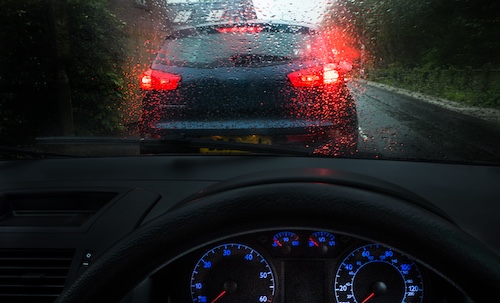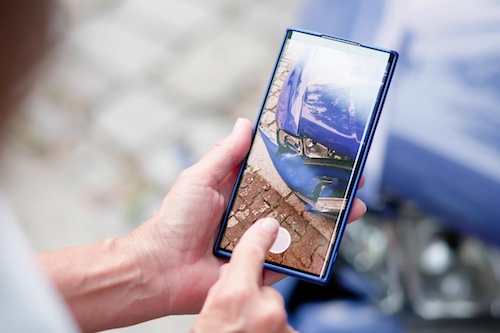Can You Sue If Poor Road Conditions Caused Your Crash in Georgia?
Bad road conditions lead to thousands of accidents across Georgia each year. Drivers hit potholes, lose control on wet pavement, or crash in areas with missing signs or poor lighting. In many of these cases, the crash is not just bad luck. It may be the result of someone failing to fix a known hazard. If you were hurt in a car accident caused by unsafe road conditions, you may have the right to seek compensation. Knowing who is responsible and what the law allows is the first step.
In this blog, you will learn who may be legally responsible for dangerous road conditions, what types of accidents these hazards cause, and how an experienced Atlanta car accident attorney can help you build a strong claim for compensation.
What Are Dangerous Road Conditions?
Road conditions can change quickly. When roads are not properly built, marked, or maintained, they can become a serious risk for drivers, especially in high-traffic areas like Atlanta and across Georgia.
Poor Surface Conditions
Potholes, cracks, and uneven pavement cause many vehicle accidents each year. These issues often develop over time due to weather, traffic wear, and neglect. When drivers hit a deep pothole or lose control due to broken asphalt, crashes can follow. Surface hazards can damage tires, throw a vehicle off course, or lead to rollovers.
Lack of Signage or Road Markings
Missing or faded road signs and lane markings make it hard for drivers to stay in the correct lane, yield, or stop. At intersections or curves, the absence of signs can lead to deadly collisions. This is common in rural Georgia counties and on roads under construction or repair.
Poor Drainage and Standing Water
Blocked drains or failed drainage systems allow water to collect on the road surface. Standing water increases the risk of hydroplaning, especially at higher speeds. In Georgia, sudden rainstorms can overwhelm old or clogged systems, causing dangerous travel conditions in a short amount of time.
Inadequate Lighting
Dim or missing streetlights limit visibility at night. Drivers cannot see other vehicles, pedestrians, or road hazards in time to react. This is a safety risk on local roads, highways, and outside urban areas.
Debris and Loose Gravel
Loose gravel, fallen branches, or objects left after a crash can lead to skidding or loss of control. Construction zones are frequent sources of this type of hazard. If road crews or government departments do not clear debris, it can quickly lead to new accidents.
Construction Zones Without Clear Warnings
Ongoing road projects often shift traffic patterns or close lanes. If signs are missing, barriers are moved, or warnings are not visible, drivers may enter dangerous areas without knowing. This is a leading cause of crashes near construction areas.
Weather-Related Hazards
Ice, snow, and fog can turn safe roads into dangerous ones. In Georgia, black ice forms during sudden cold snaps, especially on bridges and overpasses. Wet leaves in the fall also reduce traction. While weather is not controllable, proper warning signs and treatment (like salting or sanding) help reduce risk.
Common Accidents Caused by Hazardous Roadways
Hazardous road conditions lead to different types of vehicle crashes across Georgia every year. These accidents often result in serious injuries, property damage, or death.
Single-Vehicle Crashes
Drivers often lose control when hitting a pothole, hydroplaning on standing water, or sliding on black ice. These crashes usually involve the car veering off the road or hitting a fixed object like a tree, pole, or guardrail. In many cases, the police report lists “loss of control due to road conditions” as the cause.
Rear-End Collisions
When traffic slows or stops because of road construction, poor signage, or blocked lanes, rear-end crashes are common. Drivers may not see a warning sign or react in time if the road surface is slick or uneven. Poor visibility and sudden changes in traffic flow make these accidents more likely.
Multi-Vehicle Pileups
Hazardous roadways increase the chance of chain-reaction crashes, especially during heavy traffic or bad weather. Slippery roads, fog, and unclear lane markings reduce reaction time and increase the risk of multiple vehicles crashing in the same area. These crashes often involve serious injuries and long delays.
Run-Off-Road Accidents
Missing guardrails, poor lighting, and sharp curves without warning signs can cause a driver to leave the road. These accidents often occur at night or in rural areas. The vehicle may roll over, fall into a ditch, or strike a barrier. In Georgia, these accidents are more common in mountain areas or near construction zones.
Intersection Collisions
Intersections with missing stop signs, broken traffic signals, or faded lane lines can confuse drivers. One driver may think they have the right of way and enter the intersection at full speed. Crashes at intersections often result in side-impact injuries or vehicle rollovers.
Construction Zone Crashes
Improperly marked work zones can confuse drivers and force them into unsafe paths. Narrow lanes, loose gravel, or sudden detours increase the risk of crashes. If traffic control devices are not used or placed correctly, the danger rises. These accidents can involve construction workers, public property, and multiple vehicles.
Who Is Responsible for Road Maintenance in Georgia?
To hold someone accountable for a crash caused by poor road conditions, you must first identify who was responsible for keeping the road safe. In Georgia, this depends on the road’s location and type.
Georgia Department of Transportation (GDOT)
The Georgia Department of Transportation maintains the state highway system. This includes interstates, state routes, and major roads that connect cities and counties. GDOT is in charge of fixing potholes, clearing debris, managing construction projects, and updating traffic signs on these roads. If a crash occurs on a state-maintained road, GDOT may be responsible if the hazard was reported and ignored or if proper warnings were not posted.
County Road Departments
Each county in Georgia manages its own network of local roads. County offices handle repairs, signage, and drainage systems on roads that do not fall under state control. In rural areas, many crashes occur on county roads that suffer from long-term neglect. If a crash happened due to a known hazard on a county road, the county government may be liable.
City or Municipal Road Crews
Cities and towns are responsible for maintaining roads within city limits. These include residential streets, local intersections, and small access roads. If poor road conditions exist within a city and lead to an accident, the city’s public works or transportation department may be at fault. Failure to respond to maintenance requests or warning signs can result in injury or property loss.
Private Property Owners and Contractors
Not all roads are public. Private roads, driveways, parking lots, and certain access lanes are maintained by private property owners or commercial contractors. If an accident occurs on a road controlled by a business or landowner, they may be responsible for failing to keep it safe. This often applies to roads within apartment complexes, shopping centers, or gated communities.
Legal Grounds for Suing Over Dangerous Road Conditions
Drivers have the right to expect safe roads. If a crash occurs due to unsafe road conditions, it may be possible to file a legal claim. Georgia law sets rules for when and how you can sue.
Negligence and Duty to Maintain Safe Roads
Government agencies and private parties have a duty to keep roads safe for public travel. If they fail to repair hazards or warn drivers about known dangers, they may be considered negligent. To prove negligence, you must show that the responsible party knew or should have known about the unsafe condition and failed to fix it in a reasonable time.
Sovereign Immunity and State Liability
The State of Georgia is protected by sovereign immunity, which limits when you can sue the state government. However, the Georgia Tort Claims Act, under O.C.G.A. § 50-21-24, allows lawsuits in certain cases. You can file a claim if a state agency, such as the Georgia Department of Transportation, fails to fix a known road hazard or creates unsafe conditions through its actions.
Local Government Responsibility
Cities and counties can also be held responsible for unsafe roads. These governments must respond to public complaints, perform regular inspections, and repair dangerous conditions. If a local government ignores a problem or delays repairs after receiving reports, it may be held liable for accidents that result.
Claims Against Private Entities
Private road owners, construction companies, and property managers must keep roads and traffic areas under their control in safe condition. If they allow loose gravel, standing water, or poor lighting to exist, and someone gets hurt as a result, they can face legal action. Businesses with parking lots or private driveways must also follow basic safety standards.
Notice and Knowledge
To file a successful claim, it is important to show that the responsible party had notice of the problem. This can be through written complaints, maintenance records, or past crash reports at the same location. Courts also look at how long the hazard existed before the crash and whether action was taken to fix or warn about the danger.
Contact an Experienced Atlanta Car Accident Lawyer Today!
If you or a loved one were hurt in a crash caused by dangerous road conditions, do not wait to get legal help. Our team at GMV Law Group has the experience to investigate the cause of your accident, identify the responsible parties, and take action on your behalf.
Contact us at 404-975-4878 today for a free case review today!





